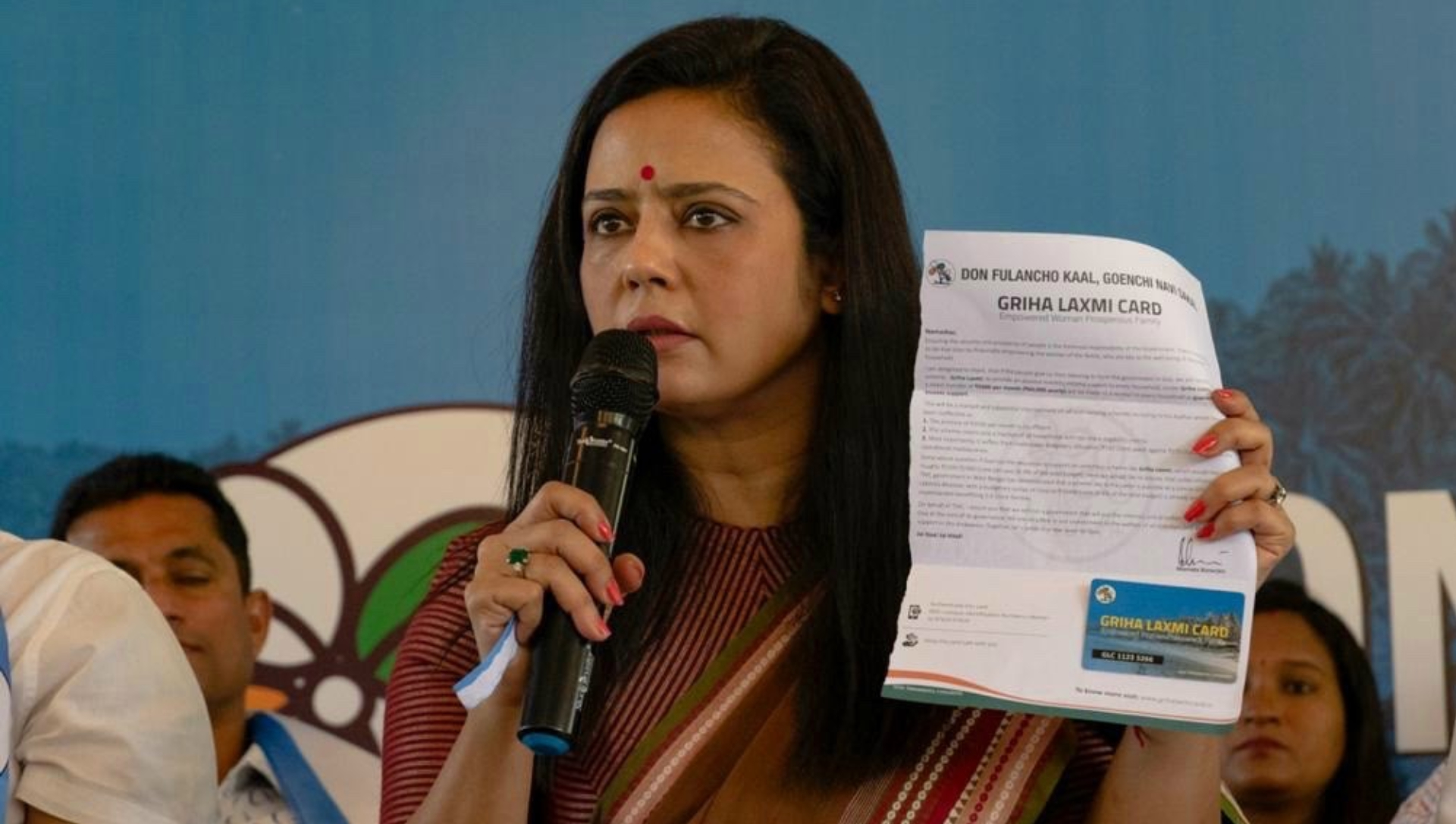After a section of Hindus were offended by the official poster of a documentary, Kaali, Delhi police registered a case against its Toronto-based director Leena Manimekalai under 295A (hurting religious sentiments) and 153A (disturbing communal harmony) of the Indian Penal Code (IPC).
In the poster released at the Canada film festival, a woman dressed as the Hindu goddess Kali is seen smoking a cigarette, with a LGBTQ flag in the background. This drew a lot of flak from several Hindus on social media, with many calling for the director’s arrest, even as Leena does not live in India.
Trinamool Congress (TMC) politician and parliamentarian Mahua Moitra quickly jumped into the debate, without referring to the poster or the director.
Moitra argued that Hinduism grants her the freedom to imagine goddess Kali the way she wants and it should not hurt anyone’s sentiments. For her, Goddess Kali is a meat-eating and alcohol-accepting goddess, she asserted pointing out Tarapith (a major Shakti peeth in West Bengal’s Birbhum district), where ‘sadhus’ smoke.
Since the Nupur Sharma controversy, which led to a spate of Hindu killings by Muslim extremists across the country and a sanctimonious lecture to Nupur by the Supreme Court of India, a large section of Hindus in India has already been fuming. Amidst the ongoing outrage, the Kaali poster has made the debate shriller and Moitra’s statement has only added more fuel to the fire.
Her penchant for polemics and acerbic style notwithstanding, the TMC parliamentarian is not wrong about the profundity of Hinduism; our gods and goddesses love all their creation including the LGBTQ community, the spiritualists who spend their lives meditating and even those who smoke tobacco and weed. Because the essence of Sanatan faith is that everything from a tree or a stone to a bird or a human, is the manifestation of god. Hindu gods do not mind their devotees eating meat or drinking alcohol or smoking tobacco. Nor do Hindu worshippers look down on the temple depictions of gods and goddess doing what humans do.
But here is the problem. It is easy for Moitra, self-admittedly a Kali worshiper, and even me as a skeptic, to recount the liberal, compassionate and all-encompassing aspects of Hinduism to defend those who take liberties with the depiction of Hindu gods and goddesses using their poor imagination or malicious intent. We instantly pounce on the Hindus who object and take offence, reminding them the openness of our philosophy and culture. We project the Hindus who call for arrests of those insulting Hindu gods, as regressive.
However, Moitra did not show the same swiftness as she did on the Kaali poster, to speak up against those who have been calling for Nupur Sharma’s beheading for merely quoting Hadith. Moitra and her kind, don’t have the intellectual honesty to call out those Muslims who sought the arrest of Nupur for mentioning something that is public knowledge about Islam’s prophet. She and many others did not protest when the so-called liberal Muslims in India demanded severe punishment for Nupur. Forget BJP’s spokesperson Nupur Sharma, Moitra did not even come to the defence of her party colleague Nusrat Jahan who recieved a fatwa from the Muslim clergy of Dar-ul-Uloom in Deoband, Uttar Pradesh, for marrying a non-Muslim and wearing ‘sindoor’. Even as she projects herself as a liberal, Moitra is yet to show spine to defend liberals like Salman Rushdie or Tasleema Nasrin for the depiction of their faith in their literary works.
This two-facedness on “blasphemy” that Moitra practices, is politically expedient for her and her likes. Like the Congress party, the TMC has also followed the policy of appeasement of Sharia-believers in the secular republic of India. While they expect the majority among Hindus to follow the laws of the republic of India, they expect majority among Muslims to follow the notions of Islamic law. The electorate does not disappoint them. They vote along the expected lines. Therefore Moitra will not say or do anything to rattle the vote bank politics of her party and her boss Mamata Banerjee in West Bengal.
However, it is not just the political class which is guilty of such hypocrisy. In India, a large section of the English-speaking educated upper class, wants to have their cake and eat it too. Their class will defend Leela and condemn Nupur. While claiming that all religions are equal, they will not dare question the preachers of Islam who describe it as the most supreme and the most superior religion as against others. While according respect to other religions, this class will not raise their voice if Hinduism is ridiculed.
All religions and cultures are not equal. While some religions are extremely pacifist and tolerant, some are extremely regressive and intolerant. But this truth is either conveniently avoided or vociferously rejected. Be that as it may, the test for moral uprightness is simple. If in the eyes of this hypocritical class, Nupur Sharma, deserves “strictest punishment” and jail for hurting religious sentiments of Muslims, then Leela deserves it too. In my eyes, neither deserve punishment for what they have portrayed about Islam and Hinduism.
Unless and until Mahua, a legislator, brings a bill demanding revocation of Indian Penal Code 295A which criminalises “blasphemy” (hurting religious sentiments) in India, her defence of Leela is nothing but a political stunt.

